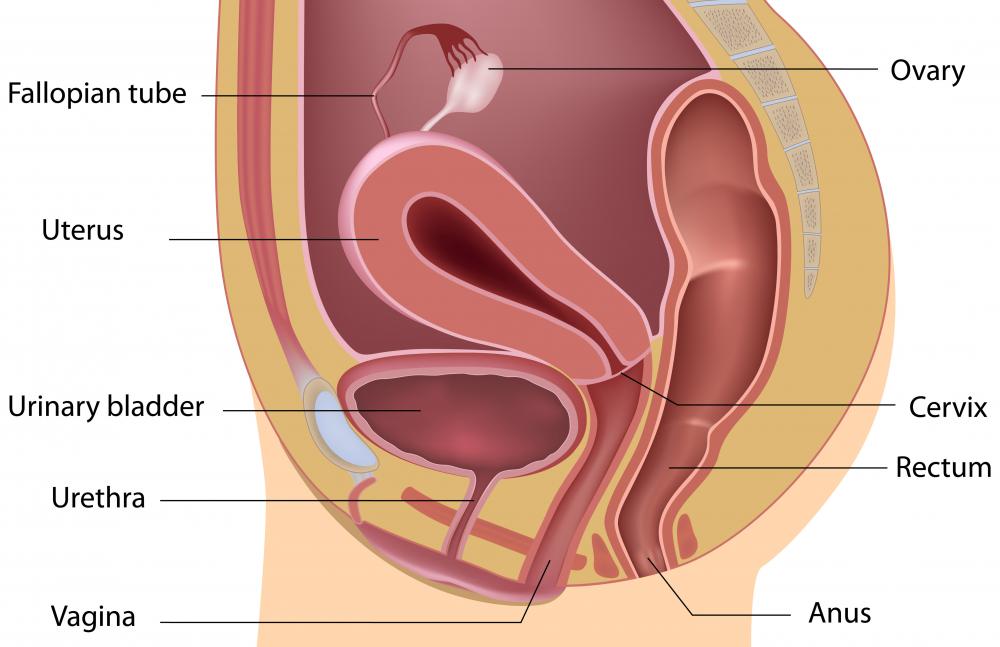At WiseGEEK, we're committed to delivering accurate, trustworthy information. Our expert-authored content is rigorously fact-checked and sourced from credible authorities. Discover how we uphold the highest standards in providing you with reliable knowledge.
What is Pelvic Inflammatory Disease?
Pelvic inflammatory disease is a condition exclusive to women that is caused by bacterial infection that spreads to the reproductive organs. Most commonly, the bacteria involved are sexually transmitted, and the result of contracting sexually transmitted diseases (STDs). This is not always the case, and some women develop PID from other bacterial introduction to the reproductive organs. In particular, some women get this condition shortly after having an intrauterine device (IUD) placed.
There are numerous symptoms of pelvic inflammatory disease and these can include having irregular periods, and some women experience heavy vaginal discharge that may have an odor. Pain from the condition may be felt in the lower back, the lower part of the stomach and in the pelvis. Many women also feel pain when they have intercourse. Some signs of bacterial infection may be present too, like fever, and some women report symptoms such as nausea and vomiting. Another common symptom is pain when voiding the bladder.

Despite the constellation of symptoms that can be associated with PID, some women do not experience any of them, and they may ignore pelvic inflammatory disease unintentionally. Certain types of bacteria, such as that from chlamydia, are associated with low symptom incidence. Unfortunately, ignoring the condition can create great complications. Over time, continued bacterial infection may scar the fallopian tubes and can create permanent or temporary infertility. Women who get pregnant when they have PID are much more likely to have an ectopic pregnancy. Even with treatment, some women may find they experience chronic pain in the pelvis for months to years thereafter.

Those who suspect pelvic inflammatory disease should see their doctor, and it isn’t necessary to wait until symptoms develop. Since one of the most common means by which this disease occurs is through certain STDs like chlamydia, women who have unprotected sex or sex with a partner who has an STD, should see their doctors right away to test for STDs. Early testing usually involves a gynecological examination and swabbing the cervix to rule out PID or presence of STDs. If PID is found, some doctors may want to do a laparoscopic procedure to determine extent of infection.

In most cases, when a woman has pelvic inflammatory disease, she will be treated with antibiotics. Many women take oral antibiotics and may have several follow up appointments with doctors to make sure the infection has fully cleared. Severe cases may require hospitalization and intravenous (IV) antibiotics. Sometimes abscesses develop in the reproductive organs, and these may require surgical draining so that they do not rupture, but this is not common.

PID is a difficult condition that can often be prevented. Women most at risk for this disease are generally those who have had unprotected sex or sex with multiple partners. Using barrier methods of birth control, particularly condoms, helps lower risk of getting the STDs most likely to cause pelvic inflammatory disease. Women are also advised to speak with their doctors about the risk versus benefits of IUD placement, since these birth control devices also pose some risk for PID, and though they may prevent pregnancy, they are not a method that prevents STDs.
AS FEATURED ON:
AS FEATURED ON:

















Discuss this Article
Post your comments